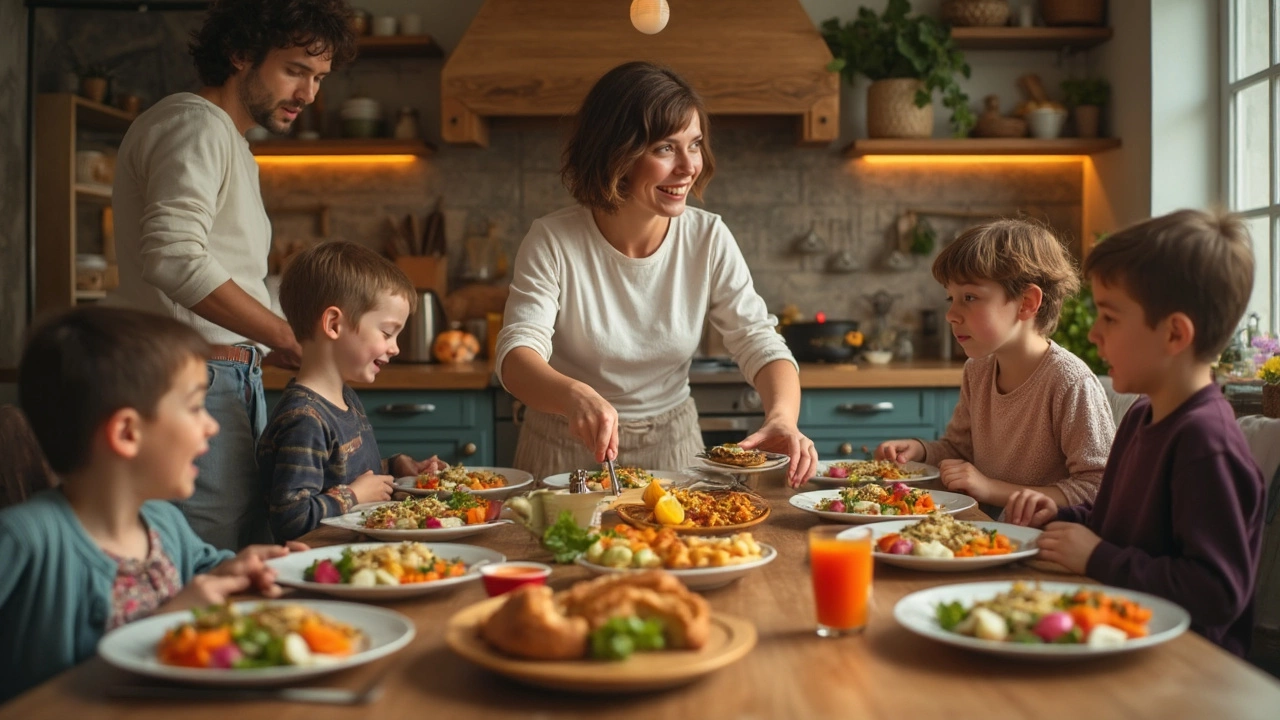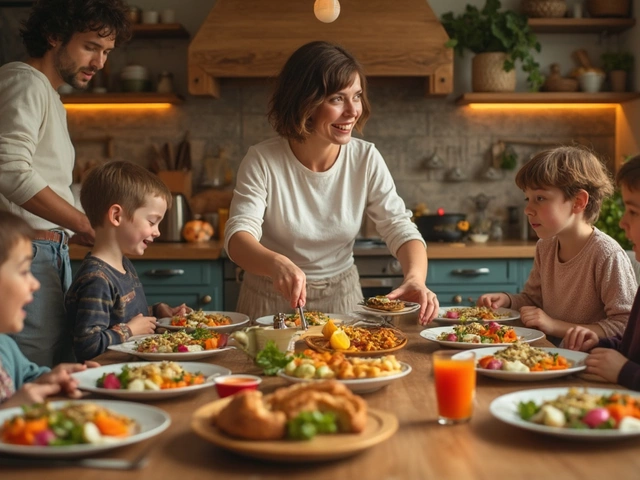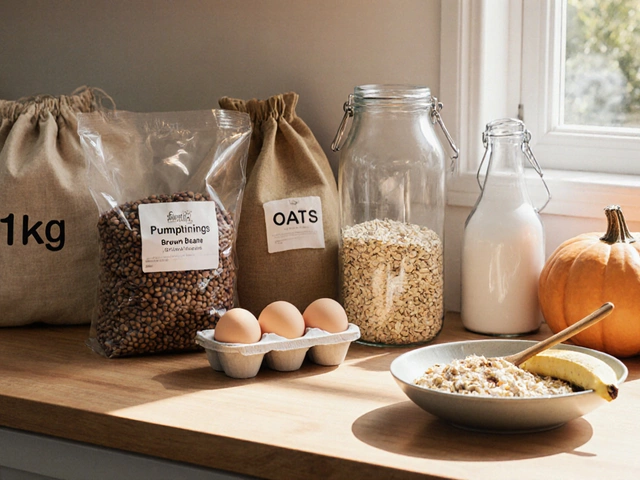You know that weird pressure right before dinner? Standing in front of the fridge, the clock ticking closer to bedtime, and your kid (or cat) staring like you hold the secret to happiness? The truth is, dinner isn’t just food. It’s a signal that the busy day is winding down, bringing us to a table—no matter how messy or chaotic—to connect and recharge. Yet most nights, it’s way too easy to get lost in the scramble, tossing together whatever’s left, hoping it counts.
Dinner should be more than random leftovers flung on a plate. What actually belongs in every dinner? I’m not talking about some influencer’s chef-level spread—I’m talking about real dinners, after work, when Willow the cat is curled up on the windowsill, and Calla’s debating over broccoli. Let’s unwrap what really works, fact-check what makes a meal click, and make dinner something everyone looks forward to (even if it’s just for dessert).
The Foundations of Every Dinner: What Your Plate Needs
The heart of dinner is balance. The Ministry of Health in New Zealand recommends half of your plate filled with veggies, a quarter with protein, and the last quarter with grains or starchy roots. This isn’t just nutrition-speak—the folks who follow these ratios actually see lower risk of chronic diseases and more stable energy in the evenings. If you’re tired of dinnertime meltdowns (your own included), try structuring your plate this way.
What does that mean in real life? It could look like roast kumara, poached chicken, and a tumble of steamed green beans. Or, on nights you’re short on time, it might just be scrambled eggs, toast, and salad. The magic is in the mix. Kids (and adults) are far more likely to eat what’s on the table if there are choices. Sometimes, all it takes is chopping raw carrots and cucumber while reheating yesterday’s curry rice. Dinner doesn’t need to be elaborate—it does need to have the basics covered.
Water matters too. Hydration slips our minds at dinnertime, but having a jug of water on the table can boost digestion and even curb the sneaky urge for sugary drinks. According to the New Zealand Heart Foundation, swapping one sugary drink a day for water reduces your weekly sugar intake by up to 350 grams—that’s nearly a bag of sugar per month out of your body, just by picking a glass of water.
Here’s a table with sample balanced dinners for different nights:
| Day | Main Protein | Vegetables | Starch/Grains |
|---|---|---|---|
| Monday | Grilled salmon | Roasted broccoli, carrots | Brown rice |
| Tuesday | Chickpea curry | Spinach, tomato | Jasmine rice |
| Wednesday | Beef stir-fry | Capsicum, snow peas | Rice noodles |
| Thursday | Pumpkin soup | Onions, garlic | Wholegrain toast |
| Friday | Roast chicken | Kumara, parsnip, peas | Steamed potatoes |
This table might look a bit too perfect. In my house, there’s always at least one kid poking at the “green stuff,” and sometimes I end up microwaving leftover pizza. But aiming for variety in protein, carbs, and vegetables means you’re ticking off both taste and nutrition goals more nights than not.
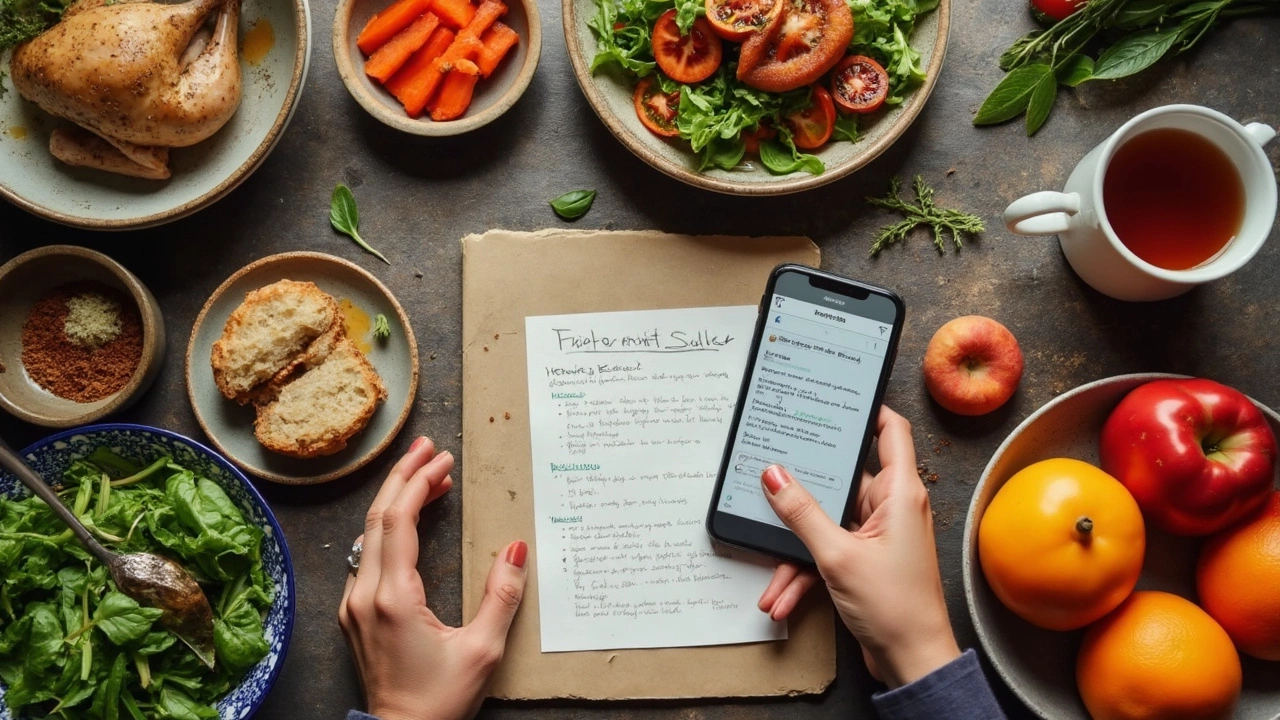
More Than Food: The Social Ingredient in Dinner
No one talks enough about the atmosphere at dinner, but it’s just as important as the meal itself. Studies from Otago University show that families who eat together at least five nights a week have kids with better vocabulary, lower rates of depression, and healthier eating patterns into adulthood. Yes, even if you bickered over the peas or the cat tried to climb the table!
Making dinner inviting doesn’t mean fancy place settings or candlelight—unless you want to. Sometimes, it’s as simple as letting kids help set the table or choose a playlist. At our house, Calla likes to draw the night’s “menu” on a scrap of paper, and somehow this small ritual turns even the most thrown-together dinner into a bit of an event. If you want conversation to flow, ditch the devices (Willow lost her feline phone privileges ages ago), and ask open-ended questions. Try: “What was your favorite part of today?” Or, “What food would you invent if you could combine anything?”
If you live on your own, dinner is still a golden chance to connect—with yourself, old friends over video chat, or even neighbors you’ve only waved to. Nearly 60% of people report higher satisfaction with their day if they paused for a proper meal, even solo, rather than grazing at the computer or phone. Setting the table—even for one—can make the whole thing feel more comforting. Add music or a book, and suddenly it’s a treat, not a chore.
Don’t forget the power of routines. A regular dinner hour, even if a bit loose, trains both brain and body to relax and digest. Living in Wellington means sunset rolls in early half the year, so that soft, last-light feeling by the window turns ordinary meals into little moments I actually want to remember.
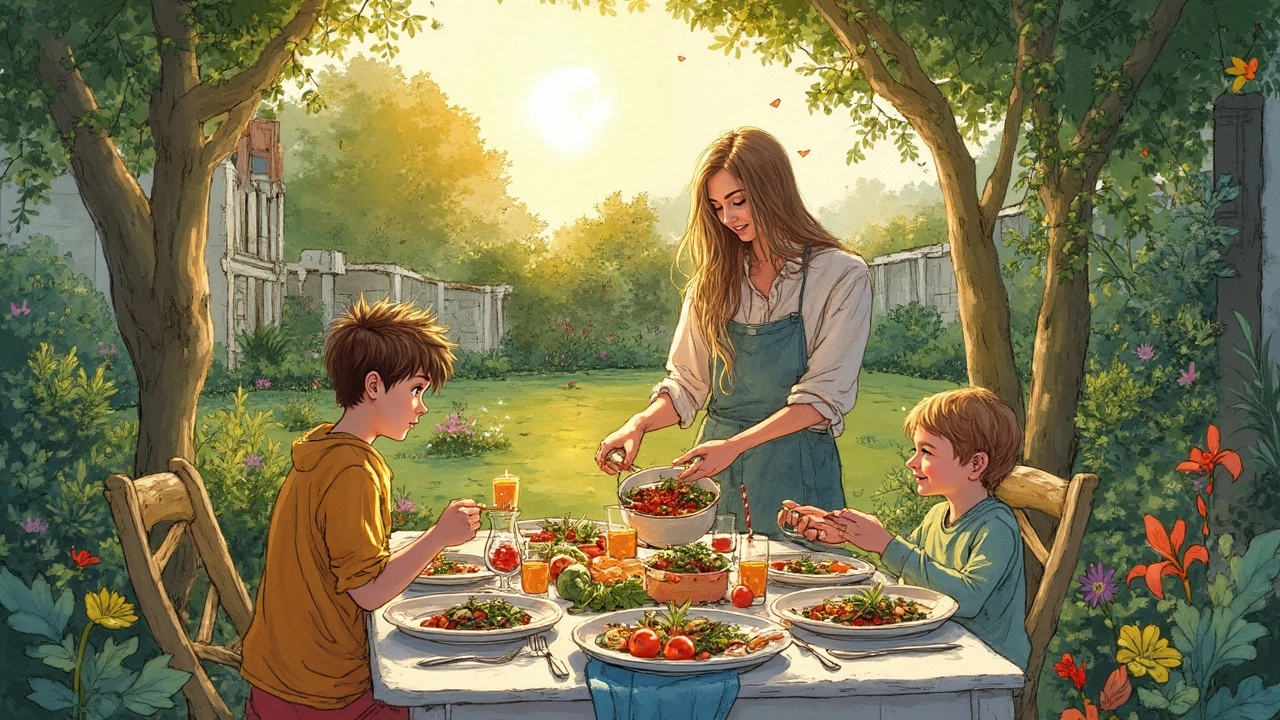
How to Build Flexible, Stress-Free Dinners Every Night
Too many recipes promise easy, quick dinners but forget that most of us don’t have endless time, patience, or a fridge always stocked like a supermarket. So what can you do right now to make dinner work, night after night, without burning out?
Start by building a basic dinner formula that you can swap parts of:
- Dinner essentials: Pick a protein, a vegetable, and a carb or grain. That’s your foundation. No matter what’s in the fridge, you can make something work with this wheelhouse.
- Shop smart: Use a whiteboard or list on your phone for the week. I write out five dinner ideas tops—this gives me enough freedom to improvise, but enough structure to avoid panic.
- Prep extras when you’re in a good mood: Chop double veggies, cook extra rice, or roast extra chicken. Leftovers are your future self’s best friend.
- Get everyone involved: If kids are old enough, have them wash veggies or set the table. If a partner or roommate is around, assign them one job—even if it’s just pouring water. A dinner made with help feels lighter on everyone.
- Lean on freezer staples: Frozen veg (peas, spinach, corn), ready-cooked rice, or even pre-marinated tofu are lifesavers. In New Zealand’s unpredictable weather, having back-ups means you’re ready for any night.
- Don’t sweat the “perfect” dinner: Some of the happiest evenings in my house are when toast, beans, and sliced avocado hit the table with zero fuss. No “Instagram-worthy” spreads, just real food that hits the spot.
If you want to push dinner from basic to brilliant, toss in a simple homemade dip (hummus, pesto, or even herbed yoghurt), or add a piece of fruit for dessert. If you can, include something raw and fresh—for crunch and fibre. Leafy greens last ages and a bag of them can be fried up with garlic or tossed into noodles in minutes.
One mum trick that rarely fails: “Deconstruct” meals for fussy eaters. Instead of a mixed stir-fry, put each item out on plates—no judgment if your kiddo ends up eating only rice and carrots that night. Exposure is half the battle, and kids’ tastes really do change over time (Calla used to gag at broccoli, now she’ll sniff it but tolerate a floret or two!).
Sometimes, you’ll have dinners that fall apart—burnt rice, vegetable mutinies, not enough in the fridge. That’s life. The real win is showing up again next night, putting a plate on the table, and sharing the time. The most memorable dinners will often be the ones that went a bit sideways. Just keep going. And if in doubt, Willow thinks any dinner counts as long as there’s a crumb on the floor for a nosy cat.
